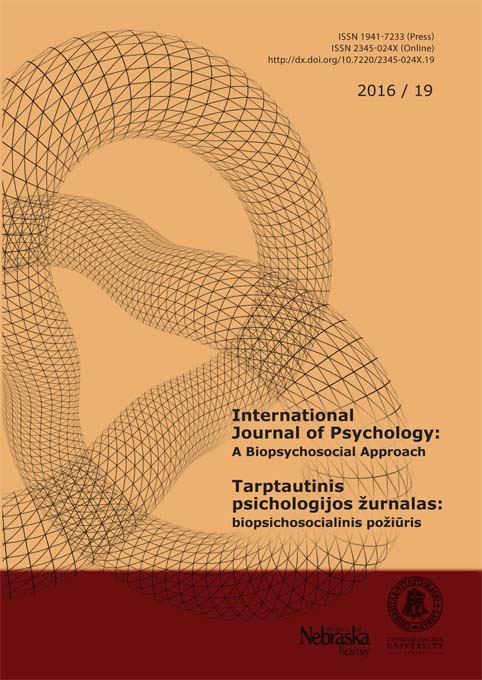Relationship With Authority in Narcissism
Relationship With Authority in Narcissism
Author(s): Dovilė Petronytė-Kvedarauskienė, Gražina GudaitėSubject(s): Psychology, Individual Psychology, Psychology of Self, Behaviorism
Published by: Vytauto Didžiojo Universitetas
Keywords: Authority; Relationship with authority; Authority complex; Ego-Self axis; Narcissism
Summary/Abstract: Background. Relationship with authority is a significant social as well as psychological factor which was destructively influenced by the Soviet authoritarian regime. In Western cultures, authority is often neglected while stressing the importance of an individual, and that leads to narcissistic problems. Though relevance of the issue of relationship with authority is acknowledged in contemporary psychology, it has been scarcely studied so far. Thorough conceptualization of the construct of relationship with authority is necessary for both an adequate assessment of it and applicability of the knowledge about the phenomenon in psychotherapy practice. Finding the narcissistic motives in relation with authority would help to handle with narcissism in research as well as in psychotherapy. The aim of the article is to give a comprehensive conception of relationship with authority with regard to its influence on human psyche development. We seek to distinguish levels and modes of this relationship. The final task is to discern specific motives of relationship with authority which are characteristic of narcissism. Methods. Psychodynamic, mostly Analytical, literature has been reviewed and analysed to explore psychological concept of relationship with authority and its part in inner dynamics of narcissism. Results. Authority can be described as a power, reputation or competence attributed to a person, social group or institution. Three levels of relationship with authority can be discerned: relationship with 1) outer authority figures; 2) inner authority; 3) transpersonal authority. Analysis of literature has led to distinguishing such characteristic motives of narcissistic relationship with authority: aggrandizement or depreciating one’s own authority; fright, anger with re-gard to or fight against authority; abusive authoritative stance or excessive submissiveness; idealization or devaluation of authorities. Conclusions. The importance of the specific modes of relationship with authority in narcissism is inferred with recommendations to include the factor into assessment and psychotherapy of narcissism.
Journal: Tarptautinis psichologijos žurnalas: biopsichosocialinis požiūris
- Issue Year: 2017
- Issue No: 19
- Page Range: 71-88
- Page Count: 18
- Language: English

